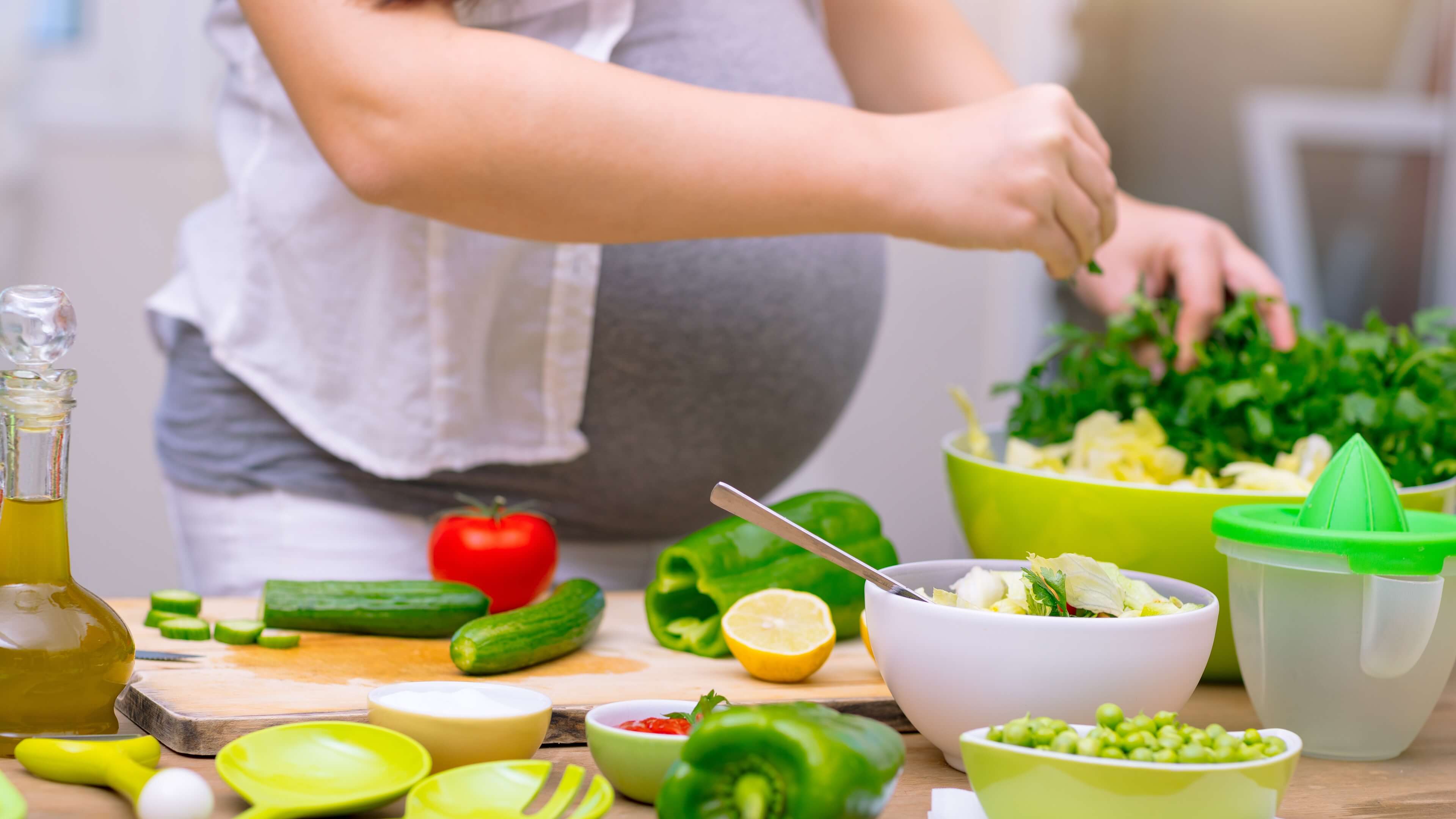Prenatal Care Tips For Second Trimester
5 minuteRead

Pregnancy usually lasts around 40 weeks. Three trimesters are used to organize the weeks. The second trimester of pregnancy lasts from weeks 13 to 27. Although every woman is different, many expectant mothers generally feel better in the second trimester than in the first. Hopefully, you will begin to notice that you are less sick and tired. You'll start to notice some new changes, such as a growing tummy, and during the third trimester, you should be able to feel your baby move and kick!
The purpose of prenatal care is to keep you and your baby healthy throughout your pregnancy. Prenatal care should begin as soon as you're expecting. During the second trimester of pregnancy, your health care practitioner may schedule prenatal care appointments every four weeks or so.
Many women say this is their favorite part of their pregnancy journey, and it's even referred to as the "golden phase" by some. Who can blame them for less sickness, better sleep, and more energy?
When it comes to the dos and don'ts of the second trimester of pregnancy, there are a few simple recommendations to remember.
1. Never miss your doctor’s appointment
Throughout your second trimester, you'll see your doctor on a regular basis. These occur every four weeks on average.
During these visits, your doctor will likely do a second-trimester ultrasound to do the following checks:
- The size and growth of your baby.
- Doppler equipment would be used to measure your baby's heartbeat.
- The activity or kicks of your baby (after around week 18 or so).
- Your doctor may also check to see whether any of your vaccines need to be updated.
You may also be given prenatal testing options such as genetic testing, ultrasounds, and blood tests. Consult your doctor about the advantages and disadvantages of these tests for you and your baby.
2. Eat wholesome food

Your nutritious diet helps give all of the nutrients you and your growing baby require. You could notice that your hunger has grown throughout your second trimester of pregnancy. Avoid the temptation to "eat for two," and instead focus on eating plenty of healthful fruits, vegetables, and other key food categories. Experts agree that while your caloric requirement increases in the second trimester, it only by about 340 calories — equivalent to an extra half sandwich and an apple.
The following are some healthy foods to incorporate into your diet:
- Vitamin A and potassium are abundant in dark, leafy greens, carrots, tomatoes, sweet potatoes, and red bell peppers.
- Fruits such as melons, mangoes, apricots, oranges, bananas, and apples are high in fiber, hydrate well, and contain vitamin C.
- Dairy: Calcium, potassium, and vitamins are found in low-fat yogurt, reduced-fat milk, and tiny amounts of cheese products.
- Whole Grains: In addition to providing beneficial fiber, many whole grains also include iron and folic acid.
- Proteins can be found in beans, peas, seeds, almonds, low-mercury fish like trout and salmon, lean beef, lamb, pig, and tofu.
During the second trimester, some nutritious and delicious snack options include:
- Smoothies made with fruit, yogurt, and leafy greens.
- Almonds, pecans, walnuts, and cashews are all raw nuts.
- Hummus-dipped vegetables
- Season's fruit
3. Keep Moving
It's important to maintain your level of activity if you were a regular exerciser prior to your pregnancy and throughout the first trimester. The following are some of the advantages of exercising during your second trimester – and beyond:
- Stress levels are lower.
- Reduced weariness and a more balanced mood
- Excess weight gain and gestational diabetes are reduced.
- Sleep quality improves, and insomnia is reduced.
- Back discomfort is lessened.
Some safe and healthy exercise options during the second trimester are yoga and walking.
4. Stay Hydrated

Whether you're pregnant or not, it's critical to stay hydrated. Preventing headaches, dizziness, kidney stones, constipation, and even preterm labor can all be avoided by staying hydrated during your pregnancy.
During the second trimester, how much water should you drink? Doctors advised that you consume 8-12 cups of water per day.
Sparkling water, herbal tea, juices, soups, and a variety of fruits are all good sources of hydration. Caffeine- and sugar-rich beverages should be avoided.
5. Get a Flu Vaccination

Now is the time to obtain a flu shot if you didn't receive one during your first trimester. All pregnant women should get a flu shot, not a nasal spray version of the vaccine. Get a flu vaccine while pregnant to protect yourself and your baby in a safe and simple method.
6. Get Enough Sleep

Even if you don't feel as tired as you did in the first trimester, it's still essential to get as much good sleep as you can at night — aim for 8 to 9 hours. Setting aside time for sleep or rest in the afternoon can also be beneficial. The trick is to pay attention to your body and rest when you need it.
7. Educate & Learn

Despite the fact that there are still a few weeks left in the pregnancy, you may want to consider having the baby sooner rather than later to make the third trimester less stressful. Here are some things you can do right now to get ready for your baby's arrival:
- Take advantage of good prenatal education classes.
- Consider breastfeeding, infant CPR, first aid, and parenting classes.
- Use the internet to educate yourself.
- On YouTube, you may find natural and non-frightening birth footage.
- Take a tour of the hospital or birth center where you will deliver your baby.
- Create a nursery or an area for the newborn baby in your home.
The second trimester is often associated with an improved sense of well-being. Morning sickness usually subsides after a few hours. You start to sense the baby's movements. Your stomach gets more obvious. There's a lot going on.
Even if it seems ridiculous or insignificant, tell your health care provider what's on your mind. When it comes to your health — or the health of your baby — nothing is inconsequential.
Write, Record and Answer! Consume Unlimited Content! All you need to do is sign in and its absolutely free!
Continue with one click!!By signing up, you agree to our Terms and Conditions and Privacy Policy.












